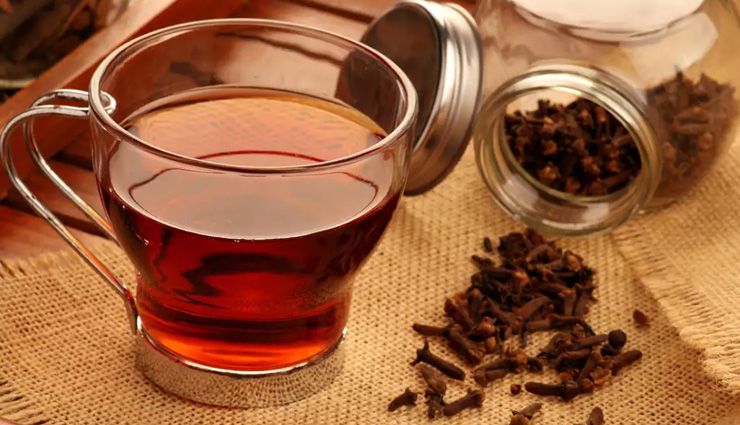7 Least Known Health Benefits of Drinking Clove Tea

Clove, known for its distinctive taste and aroma, contains various bioactive compounds, including eugenol, which is believed to offer antioxidant, anti-inflammatory, and antimicrobial properties. As a result, clove tea has been traditionally used in herbal medicine to alleviate various ailments, including digestive issues, respiratory problems, and dental discomfort.
In addition to its potential health benefits, clove tea holds cultural significance in many regions, often being served during special occasions, celebrations, and religious ceremonies. Its unique flavor profile adds depth to culinary recipes, both in beverages and savory dishes.
Whether enjoyed for its bold flavor, potential health benefits, or cultural significance, clove tea remains a beloved beverage with a rich history and a promising future in the world of herbal infusions.

Cloves contain high levels of antioxidants, which help combat oxidative stress in the body. Antioxidants protect cells from damage caused by free radicals, potentially reducing the risk of chronic diseases such as heart disease and cancer.
Eugenol, the primary compound in cloves, exhibits anti-inflammatory properties. Drinking clove tea may help reduce inflammation in the body, which can contribute to the management of conditions like arthritis and inflammatory bowel diseases.# Antimicrobial activity
Clove possesses antimicrobial properties that may help fight off harmful bacteria, viruses, and fungi. Consuming clove tea could potentially support the immune system and help prevent infections, including respiratory infections and dental issues.
Clove tea has been traditionally used to aid digestion and relieve gastrointestinal discomfort. It may help alleviate symptoms such as bloating, gas, indigestion, and nausea.
Eugenol is commonly found in dental care products due to its analgesic and antiseptic properties. Drinking clove tea or using clove-infused mouthwash may help alleviate toothaches, gum pain, and oral infections. Additionally, cloves are believed to have natural breath-freshening properties.
The warming and soothing properties of clove tea may provide relief from respiratory issues such as coughs, colds, and bronchitis. Clove tea is often consumed to ease congestion and promote respiratory comfort.
Some studies suggest that clove may help regulate blood sugar levels by improving insulin sensitivity and glucose metabolism. Drinking clove tea in moderation as part of a balanced diet may potentially benefit individuals with diabetes or those at risk of developing the condition.